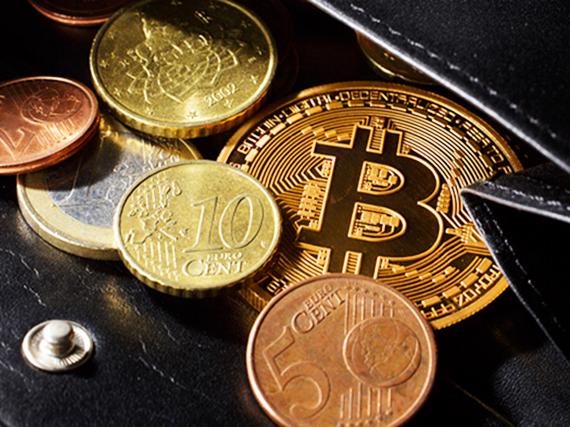主页 > imtoken苹果版国外 > 四象 | 肖京:中国数字货币的发展与合法化
四象 | 肖京:中国数字货币的发展与合法化
作者| 肖静,中国社会科学院法学研究所副研究员。
来源 | 《中国法治发展报告第20号(2022)》。 为阅读方便,省略注释和参考文献,建议阅读原文。
摘要:数字货币可以大致认为是基于区块链技术的数字货币。 中国数字货币的发展既有国际背景,也有国内背景。 近年来,我国数字货币发展非常迅速,急需法治化监管。 中国数字货币的法律实践大致可以概括为立法、执法和司法三个层面。 针对我国数字货币法律实践中存在的问题和不足,需要从数字货币合法化的高度进行完善。 数字货币合法化的内容相当丰富,但主要涉及数字货币的法律地位和法律属性、数字货币发行流通合法化、数字货币监管合法化等具体问题。
关键词:数字货币; 发展; 法律规定; 制度建设
数字货币是指以数字形式存在的货币,在不同的语境下具有不同的内涵和外延。 总的来说,数字货币可以大致看成是基于区块链技术的数字货币。 数字货币是数字经济时代的产物,与互联网技术紧密结合,具有现代性和科技性的典型特征。 随着数字货币的快速发展,数字货币合法化成为当前法治建设的重要课题,中央高度重视。 2021年3月发布的《国民经济和社会发展第十四个五年规划及2035年远景目标纲要》明确提出“积极参与数据安全、数字货币等国际规则和数字技术标准制定和数字税。” 》、《稳步推进数字货币研发》。为此,本文拟从我国数字货币发展的基本情况出发,分析我国数字货币法律实践的现状和问题,并提出为我国数字货币法律体系的建设和完善提出相应的对策建议。
1 中国数字货币发展的基本情况
(一)中国数字货币发展背景分析
讨论中国数字货币的发展需要简要分析一下中国数字货币发展的国际国内背景。 这是因为,一方面,数字货币起源于国外,并非中国自发产生。 是“进口产品”,具有国际特色; 但数字货币在中国的蓬勃发展符合中国经济发展的趋势,具有地方特色。 另一方面,数字货币是商品经济发展到一定阶段的必然产物。 它是货币体系从商品货币向信用货币不断演进的必然结果。 有必要从国际和国内两个层面来分析。
就国际背景而言,中国数字货币的发展也是世界数字货币发展的一个组成部分,受到国际数字货币发展的制约和影响。 据考证中国全面禁止比特币挖矿2022,数字货币起源于2008年一位自称“中本聪”的神秘人士发表的经典论文《比特币:一种点对点电子现金系统》。 支付理念引发了各种数字货币的创新浪潮,推动了数字货币的进一步发展。 此后不久,基于不同区块链技术创新的各种数字货币不断涌现,以比特币为代表的非主权数字货币开始进入蓬勃发展的黄金时期。 在非主权数字货币快速发展的同时,各国央行也在积极探索自己的主权数字货币,并在国际层面展开了激烈的竞争。 2020年是全球央行数字货币加速发展的一年。 国际清算银行报告显示,全球至少有36家央行发布了央行数字货币计划。 迄今为止,许多国家在主权数字货币的研发方面取得实质性进展或明确表示发行主权央行数字货币的意向,如法国、瑞典、沙特阿拉伯、泰国、土耳其、巴哈马、巴巴多斯、乌拉圭等和其他国家。 可以合理预见,围绕央行数字货币的竞争在不久的将来将会加剧。 中国数字货币的发展就是在这样的国际背景下进行的。
就国内情况而言,随着我国电子商务的不断发展,移动终端设备的普及率也在快速提升。 目前,中国已成为名副其实的第三方支付大国。 数字经济的快速发展,不仅为我国数字货币的发展营造了良好的网络环境,也为数字货币的应用提供了广阔的应用场景。 随着我国数字经济的不断深入发展,数字经济在经济中的比重越来越大,各行各业对数字货币的需求将更加强烈,这将进一步推动数字货币更快发展。 可见,中国数字货币的发展具有充足的内在动力和坚实的经济基础,这是中国数字货币发展的国内背景。
总之,我国发展数字货币既是为了有效应对非主权数字货币带来的各种新问题,也是为了满足国内数字经济发展的客观需要,具有国际国内两个背景。 分析中国数字货币发展的国际国内背景,有助于更全面、深入地了解中国数字货币发展的历史进程和未来走向。

(二)我国非主权数字货币的发展
数字货币发展初期主要是以比特币为代表的非主权数字货币的兴起和发展。 非主权数字货币的蓬勃发展,不仅引起了投资者的广泛关注,也引发了一系列社会问题。 尽管如此,时至今日,数字货币的流行度并未减弱。
作为资源大国和人口大国,中国丰富的自然资源和人口资源为比特币等非主权数字货币的发展提供了坚实的基础和有利条件。 2011年以来,我国非主权数字货币普遍经历了蓬勃发展、无序扩张、监管限制、法律禁止等阶段,广泛涉及数字货币的生产(挖矿)、交易、存储(钱包)、兑换、支付等各个环节。数字货币。 以及消费等方面和领域。 以非主权数字货币的生产为例,中国四川、内蒙古、江西等水力、风力资源丰富的地区,由于其低廉的成本成为比特币等非主权数字货币的最佳生产基地。电费。 在平台交易方面,比特币中国、OKCoin、火币等交易平台吸引了大量注册用户,成为非主权数字货币交易的主要平台。 在支付和消费方面,以比特币为代表的非主权货币以其独特的优势迅速占领相关市场,应用场景十分广阔。
比特币等非主权数字货币在中国蓬勃发展的原因是多方面的。 有学者通过研究发现,交易收入、货币升值收入、心理效用都与比特币的扩散速度呈正相关。 的确,比特币等非主权数字货币的价格波动以及由此带来的巨大获利预期,直接刺激了人们的金钱贪欲,有力推动了非主权数字货币的蓬勃发展。 此外,比特币等非主权数字货币通过“去中心化”带来的交易匿名性,为各种非法交易提供了可能,也在一定程度上促进了非主权数字货币的发展。
国内各行各业对非主权数字货币高度关注的主要原因是非主权数字货币交易价格的大幅波动。 事实上,以比特币为代表的“去中心化”非主权数字货币的交易价格一开始是相当低的。 比特币最初的交易是一位网友用10000个比特币兑换了一张披萨券。 虽然实现了历史性的飞跃,但成交价其实微不足道。 但随后,比特币交易频繁,价格持续上涨。 截至2016年底,比特币交易价格在1000美元左右波动。 但自2017年以来,比特币价格在短时间内大幅上涨,甚至在2021年4月的交易价最高点突破6.2万美元,但随后开始大幅回落。 截至 2021 年 8 月 31 日,比特币的交易价格约为 48,000 美元。 在比特币交易价格剧烈波动的过程中,一些参与者从中获取了巨额利润,但更多的参与者倒闭了,引发了一系列严重的社会问题。 正如一些学者指出的那样,比特币的过度去中心化和无政府主义的理念和机制,使其成为一种数量有限、价值波动较大的数字资产,无法发挥正常的货币功能。 针对上述乱象,有必要进行严格的法律规制。
(三)中国主权数字货币的发展
各国央行也在积极探索自己的主权数字货币,展开激烈的竞争。 2020年是全球央行数字货币加速发展的一年。 国际清算银行报告显示,全球至少有36家央行发布了央行数字货币计划。
中国高度重视央行数字货币的研发。 2014年,中国人民银行成立专项研究组,正式启动法定数字货币研究,对数字货币发行与业务运行框架、数字货币关键技术、发行流通环境、法律问题等进行深入研究面对。 2016年6月,中央编辑部批复中国人民银行印刷科技研究所变更为中国人民银行数字货币研究所,主要负责数字货币研发、原型构建、实验推广等工作和系统建设。 2017年1月,央行在深圳正式成立数字货币研究所。
2019年8月18日,中共中央、国务院印发《关于支持深圳建设中国特色社会主义先行示范区的意见》,明确提出支持数字货币研究等创新应用在深圳。 2019年底,数字人民币先后在深圳、苏州、雄安新区、成都以及未来的冬奥会场景开展试点测试。 2020年10月,新增上海、海南、长沙、西安、青岛、大连6个试点地区。 2020年12月29日,北京首个央行数字货币应用场景在丰台丽泽落地。 2021年2月7日0时,北京启动“数字王府井冰雪购物节”数字人民币红包预约活动,面向北京市民开放。 个人将发放1000万数字人民币红包。
据中国人民银行2021年7月16日发布的《中国数字人民币研发进展白皮书》统计,截至2021年6月30日,数字人民币试点场景已超过132万个,涵盖生活在支付、餐饮服务、交通购物、政务服务等领域,开通个人钱包2087万余个,公众钱包351万余个,累计交易笔数7075万余笔,金额约345亿元。 截至2021年8月20日,数字人民币钱包可选运营机构扩大至35家,涵盖股份制银行、城市商业银行以及部分农村信用社和农村商业银行。
进入2022年以来,数字人民币推广全面提速,城市覆盖和应用场景进一步扩大。 2022年2月,北京地区数字人民币正式登陆冬奥场景,应用场景40.3万个。 2022年4月2日,中国人民银行宣布进一步扩大数字人民币试点范围,新增天津、重庆、广州、广东、福州、福建(含平潭综合试验区)、厦门、浙江等城市举办亚洲数字人民币试点。运动会 会议中的六个城市将作为新数字人民币的试点地区。
可见,人民银行数字货币研究虽然起步较晚,但发展迅速。 尤其是2019年之后的两三年,数字人民币落地的速度相当惊人。 未来,数字人民币的应用场景将进一步拓展,相关技术水平将进一步提升,在中国金融领域发挥更大作用。

2 中国数字货币的法律实践
中国数字货币法治虽然实施时间不长,但内容非常丰富。 笔者从立法实践、执法实践和司法实践三个层面对我国数字货币法律实践进行了粗略梳理,并简要分析了我国数字货币法律实践中存在的一些问题。
(一)我国数字货币立法实践
针对数字货币发展中的相关问题,相关部门出台了一系列规范性文件,从法律制度层面进行相应规范。 在制定规范性文件方面,影响较大的国家立法是关于比特币等数字货币的三大重要文件。
第一个文件是中国人民银行、中国银行业监督管理委员会、工业和信息化部、中国证券监督管理委员会、中国保险监督管理委员会于 12 月 5 日发布的《关于防范比特币风险的通知》, 2013年,《通知》将比特币定义为虚拟商品,明确规定比特币不具有与货币同等的法律地位,不能也不应当作为货币在市场上流通。 包括银行在内的金融和支付机构不得从事比特币交易,加密数字货币交易所应在政府电信监管机构注册中国全面禁止比特币挖矿2022,并遵守反洗钱规定。
第二个文件是中国人民银行、国家互联网信息办公室、工业和信息化部、国家工商总局、银监会联合发布的《关于防范代币发行和融资风险的公告》证监会、证监会、保监会于2017年9月4日发布。《公告》声明,代币发行(ICO)属于未经批准的非法融资行为,同时要求各类ICO“停止立即”,尽快将投资者账户内的所有资产返还给投资者。
第三个文件是中国人民银行、中国银保监会等十部委于2021年9月24日印发的《关于进一步防范和处置虚拟货币炒作交易风险的通知》。《通知》明确指出“比特币、以太币等虚拟货币不具有与法定货币同等的法律地位,不能作为货币在市场上流通”。 同时,国家发改委在官网发布《关于整治虚拟货币“挖矿”活动的通知》,禁止以任何名义“挖矿”,包括数据中心企业在征信中的相关承诺。 ,以及包括虚拟货币“挖矿”在内的“挖矿”活动被列为淘汰行业,停止一切财税支持。
此外,地方有关部门也相继出台了一些区域性规范性文件。 例如,2021年3月,内蒙古自治区发展改革委印发《确保完成“十四五”期间能源消费双控目标的若干保障措施(征求意见稿)》,要求所有2021年4月底前正式停止虚拟货币挖矿项目,建议合理有序控制数据中心建设规模,严禁新建虚拟货币挖矿项目,降低电力消耗。
(二)我国数字货币执法实践
就数字货币执法而言,我国目前对数字货币的执法主要针对比特币等非主权数字货币的交易风险。 这些执法行动既包括中央部委层面的全国统一执法,也包括地方层面的区域执法。
一是对交易平台企业进行实地考察,防范可能出现的问题。 例如,2017年1月,针对比特币价格大幅波动可能带来的金融风险,中国人民银行等部门对比特币中国、火币、币行等交易平台进行了现场检查.
二是约谈相关企业,妥善处理数字货币交易中的具体问题。 例如,2017年9月15日,北京市互联网金融风险工作组会见北京地区数字货币交易所高层,要求立即停止新增客户注册,并制定详细的用户补偿方案。

三是加强监管,管控虚拟货币交易行为。 例如,2019年11月22日,中国人民银行上海总部宣布将加大监管力度,严厉打击虚拟货币交易。
四是加强行业管理和自律,防范化解金融风险。 例如,2021年5月18日,中国互联网金融协会、中国银行业协会、中国支付清算协会联合发布公告,提醒公众正确认识虚拟货币的性质及相关业务活动; 货币相关业务; 提醒消费者提高风险防范意识,谨防财产权益流失。 要求加强会员单位自律管理。
此外,自2021年以来,有关部门进一步加大了对比特币挖矿和交易活动的执法力度。 例如,2021年5月21日,国务院金融稳定发展委员会第51次会议明确提出“严厉打击比特币挖矿和交易”。 随后,当地执法部门对比特币挖矿和交易展开新一轮打击。
(三)我国数字货币司法实践
数字货币的快速发展,在现实生活中产生了一系列与数字货币相关的诉讼,形成了一些典型的司法案例。 这些案件既包括与比特币交易相关的民事诉讼,也包括涉及比特币欺诈等犯罪的刑事诉讼。
在民事司法领域,具有代表性的案例是北京市海淀区审判的比特币现金纠纷案。 在刑事司法领域,既有“比特币矿机”盗用电力的盗窃刑事案件,也有涉及比特币的涉嫌敲诈勒索案件。 一般来说,大部分案件基本上都是通过现有的法律框架体系来判断的。
但也有一些特殊的具体问题,比如比特币的价格如何确定,比特币等数字货币是否可以构成诈骗勒索的犯罪对象,这些都是现有法律框架下难以回答的问题。 对此,我国一些地方法院进行了有益探索。 例如,上海市第一中级人民法院通过对“李盛艳、布兰登·斯密特诉闫向东、李敏等财产损害赔偿纠纷”典型案件的判决,探讨了司法实践中的相关问题。 该案入选2020年度全国法院系统优秀案例,对今后同类案件的判决具有重要的参考价值和指导意义。 又如,广东省东莞市中级人民法院在审理一起比特币诈骗案时,将比特币认定为刑法规定的财产,认定比特币构成诈骗罪的犯罪客体。 本案判决对类似案件也具有参考价值。
(四)我国数字货币法律实践中存在的主要问题
从上述我国数字货币法制化实践的基本情况可以看出,数字货币相关的法律体系还不完善,法制化程度还不够深入。 具体体现在以下几个方面。
一是数字货币相关立法水平普遍较低,多以部门规章或地方性文件的形式出台。 立法水平低下的现状当然有其客观原因。 比如数字货币发展太快,需要进一步观察。 立法相对滞后的矛盾是客观存在的,但制约着数字货币法治的进一步发展。
二是立法体系不健全,法治的深度和广度仍有待提高。 对数字货币的法律属性、交易规则、监管法治化等一些基础性问题重视不够。
三是主权数字货币法律规范缺失,中国人民银行数字人民币相关立法规范未及时落实。 目前,我国数字人民币实践进一步推进,但数字人民币合法化进程仍需进一步加快。

四是数字货币执法专业化水平有待进一步提升。 数字货币执法不仅涉及相关法律问题,还涉及信息技术问题,不仅涉及金融安全问题,还涉及社会稳定问题,比较综合。 在数字货币执法过程中,专业化程度直接决定执法效果。
五是数字货币司法机制有待进一步完善,公民对数字货币的法律意识有待进一步提高。 将数字货币纳入法律调整的框架,是法治社会的应有之义。 这就需要进一步完善数字货币的司法机制,进一步提高公民对数字货币风险和法律规范的认识。
随着我国数字货币法治化实践的深入,我国数字货币法治化水平将围绕上述几个方面进一步提升。
3 中国数字货币法律体系的构建与完善
数字货币的创新旨在创造理想的交易中介和稳定的资产替代品,完善货币供应机制和价格稳定机制,避免通胀和通缩的周期性影响,稳定经济预期,提高交易性的隐私性和安全性。 从这个意义上说,数字货币首先具有经济属性,数字货币的出现将对未来的经济发展产生非常重要的影响。 但需要看到的是,在现代社会,数字货币的法律属性同样需要被重视。 只有在法治框架下,数字货币才能健康、可持续发展。
数字货币合法化的内容相当丰富,但主要涉及数字货币的法律地位和法律属性、数字货币发行和交易合法化、数字货币监管合法化等具体问题。 结合数字货币的发展现状,从法治化的基本要求看,我国数字货币法制体系建设应从以下几个方面进行构建和完善。
(一)立法明确数字货币的法律地位
构建健全数字货币法律体系,在立法中明确规定数字货币的法律地位,在区分主权数字货币和非主权数字货币的基础上判断其合法性。
数字货币的法律地位可以从不同角度解读。 笔者认为,数字货币的法律地位首先要界定数字货币的合法性,然后在合法性的前提下讨论数字货币的法律属性。
至于数字货币的合法性,应该在区分主权数字货币和非主权数字货币的基础上进行分析。 人们普遍认为,主权数字货币的合法性没有问题; 然而,非主权数字货币应该区别对待。 事实上,世界各国对非主权数字货币合法性的态度仍存在较大差异。
(二)进一步明确数字货币的法律属性
主要是解决数字货币是货币还是非货币财产的问题。 关于数字货币的法律属性,有学者进行了总结。 学者认为,对于数字货币的法律属性,一般有非货币属性论和货币论,其中非货币属性论有商品论、证券论、数据论等理论。 这位学者进一步指出,具有代表性的商品理论、证券理论和数据理论都存在着难以逾越的理论和实践障碍。 学者认为,回归货币的本质,作为公认的记账符号,国家或私人银行的发行只是建立货币信用的一种手段,而不是必要条件。 该学者进一步分析,与传统货币相比,数字货币依托区块链技术完成去中心化货币信用的构建,并在数字货币货币理论的基础上产生新的货币理论。 一方面,它为构建数字货币的准货币属性提供了法律依据; 另一方面也为数字货币立法的逐步完善提供了理论依据。 由此,学者得出结论,可以先确定其准货币的法律地位,待时机成熟后再确认其货币的合法地位; 有必要在立法上确认数字货币作为准货币的法律地位,作为构建作为准货币的一系列法律体系的逻辑起点。

尽管学术界对数字货币的法律属性还存在一些争议,但由于学术界“货币属性论”、“财产属性论”、“双重否定论”的争论,无法解释法律利益属性。 of digital currency from different aspects. Changing the important feature of digital currency having dual attributes of currency and property”, from the perspective of reality and operability, the author agrees with the point of view that digital currency should first be determined as the legal attribute of quasi-currency and confirmed in legislation.
(3) Legal regulations on the issuance and circulation of digital currency
The development of digital currency has brought new challenges to China's digital legislation. The traditional financial legal system is not fully applicable to digital currency. Further accelerating digital currency legislation has become an important issue in China's current legislation. With the advancement of China's digital currency practice, legislation related to the issuance and circulation of digital currency will definitely be improved accordingly.
The legalization of digital currency issuance is mainly to solve the issue of digital currency issuance power and issuing institutions. Some scholars have discussed issues related to the legalization of China's digital currency issuance. The scholar believes that the issuance of digital currency must not only be supported by advanced science and technology, but also need to be guaranteed by a complete legal system. The scholar further pointed out that the current basic environment for the issuance of legal digital currency in China is still immature, facing problems such as the lack of legal basis and the inability of the financial regulatory system to effectively supervise the operation of digital currency. The effectiveness of legal compensation, improve the supervision of the legal system on the operation of digital currency, and provide a strong institutional guarantee for the central bank to issue legal digital currency.
The legalization of digital currency circulation is mainly the definition of relevant rights and obligations in the legal relationship of digital currency transactions. Regarding the legalization of digital currency circulation, some scholars have conducted research from the perspective of the distribution of rights and obligations. The scholar believes that the legal digital currency is another major change in the currency law after the metal currency has changed to credit currency. It will inevitably lead to changes in the existing currency law theory, redistribute the rights (interests) and obligations of all parties in the currency relationship, and Further lead to the revision and improvement of relevant laws and regulations. On the basis of a systematic analysis of the legal nature and circulation nature of legal digital currency, the scholar studies the reasonable distribution of currency power (interest) obligations of the central bank, commercial banks and the public. The scholar also believes that the issuance and circulation of "legal digital currency" will bring about many legal issues, mainly including legal status, legal relationship, property rights, boundaries of rights and responsibilities, etc., which need to be continuously improved in the process of legal revision in the future.
At present, it seems that one of the feasible ways to incorporate the issuance and circulation of digital currency into the existing legal system is to revise laws and regulations such as the "People's Bank of China Law" and "RMB Management Regulations" to regulate the issuance and circulation of digital currency. Issue, circulation, management and other aspects of the legislation.
(4) Solve the problem of legalization of digital currency supervision
It is mainly about the supervision of the digital currency market and the legal supervision of criminal activities using digital currency. Some scholars, based on the development status of digital currency risk supervision in China, and on the basis of summarizing domestic and foreign digital currency regulatory models and experiences, proposed to strengthen legal protection, improve system guarantees, increase technology drive and support, ensure information security, and increase supervision. Suggestions on speeding up the establishment and improvement of China's digital currency supervision system, such as strengthening the strength, establishing a digital currency supervision system, strengthening digital currency risk warning and information disclosure, strengthening publicity and education, and strengthening international cooperation. The author believes that to build a legal system for digital currency supervision, first of all, we must have a full understanding of the various risks brought about by digital currency, improve the legal awareness of risk prevention, and prevent problems before they happen. Second, strengthen digital currency regulatory legislation and improve the corresponding legal system. Thirdly, strictly enforce the law in the law enforcement link of digital currency supervision, especially for the use of digital currency to engage in criminal activities, we must resolutely crack down. Only in this way can the legalization of digital currency supervision be truly realized.
(5) Construct a scientific and sound digital currency legal system
The first is to establish a systematic digital currency legal system through legislation. In addition to clarifying the legal status and legal attributes of digital currency in legislation, China's digital currency legal system should at least include the legal system of digital currency issuance, the legal system of digital currency circulation, and the legal supervision system of digital currency. Only by establishing a sound digital currency legal system in terms of legislation can we provide an important guarantee for the sound development of digital currency in the future.
The second is to build a scientific digital currency law enforcement system. The level of law enforcement directly affects the degree of perfection of the legalization of China's digital currency. This requires improving the regulatory legal system for digital currency and incorporating digital currency regulation into the existing legislative system; strengthening legislation to protect the legitimate rights and interests of digital currency users, ensuring that the security and privacy of digital currency users' capital accounts are protected by law ; Improve the level of digital currency law enforcement and realize the professionalization of digital currency law enforcement. It is reasonably foreseeable that with the further development of digital currency, the law enforcement capability and level of digital currency will be further improved.
The third is to establish a specialized judicial system for handling digital currency disputes. With the continuous development of digital currency, disputes related to digital currency will inevitably increase, and corresponding judicial mechanisms are urgently needed to resolve them. Digital currency disputes are highly technical and distinct from traditional legal disputes. So far, financial courts have been set up in Shanghai, Jiangxi, Beijing and other places to provide professional financial judicial relief for the parties concerned. Considering the particularity of digital currency disputes, it is very likely that a special digital currency court will be set up within the financial court to deal with legal disputes related to digital currency in the future.
The fourth is to do a good job in publicizing the rule of law of digital currency, and further improve citizens' legal awareness of digital currency. With the continuous development of digital currency, the application scenarios of digital currency will be further expanded, digital currency will become a very common thing in people's daily life, and the relevant legal rules of digital currency will also be accepted by most people. People's awareness of the operating mechanism and risks of digital currencies is also constantly improving, which will further enhance their awareness of law-abiding.







